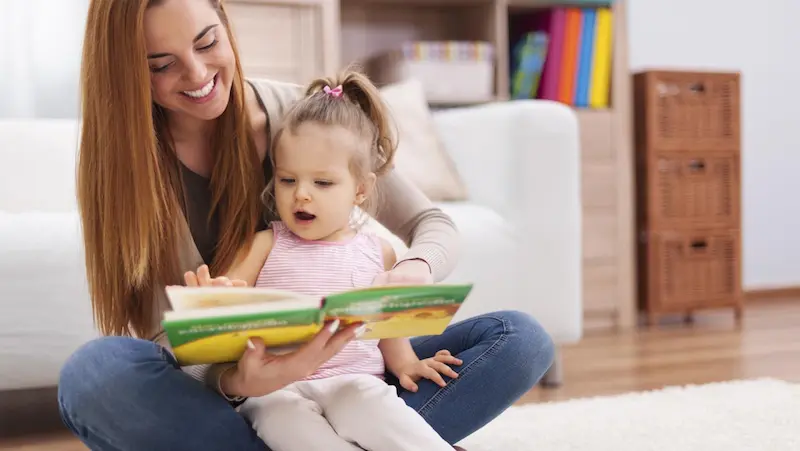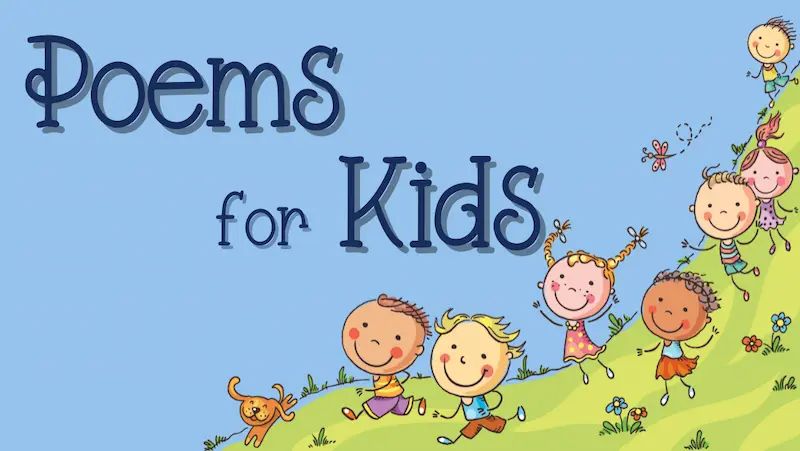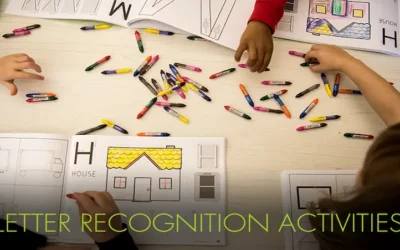Poetry is often regarded as a beautiful expression that captivates our emotions and imagination. While it is often associated with adults, poetry has a remarkable impact on children as well. In fact, poetry for kids can be a powerful tool for enhancing their literacy skills in a delightful and engaging manner.
It goes beyond mere rhymes and rhythms, offering a plethora of benefits that contribute to their overall linguistic development. By immersing children in the world of poetry, we open the doors to a world of creativity, language exploration, and the development of essential literacy skills.
One of the key benefits of poem for kids lies in its ability to enhance their vocabulary. Poems introduce children to new words, unique phrasing, and descriptive language. Through exposure to a wide range of words and phrases, children expand their vocabulary and develop a rich and nuanced understanding of language.
This linguistic dexterity not only improves their reading comprehension but also enhances their writing skills as they learn to express themselves with greater clarity and precision.
In addition to linguistic and imaginative development, poetry for kids fosters emotional intelligence and empathy. Poems often touch upon universal themes and emotions, enabling children to connect with diverse perspectives and experiences.
By exploring different poetic voices, children gain a deeper understanding of their own emotions and those of others. They learn to express their feelings creatively and develop a sense of empathy and compassion, fostering social and emotional growth mindset books for kids.
In conclusion, poetry for kids is a powerful tool for enhancing literacy skills. It provides a unique platform for language exploration, vocabulary expansion, imaginative thinking, and emotional development.
By introducing children to the enchanting world of poetry, we cultivate their love for language, ignite their creativity, and equip them with invaluable leadership skills for kids that will benefit them throughout their lives. So, let us embark on this poetic journey with our young readers, opening doors to a world of words, emotions, and boundless possibilities.
Table of contents
Understanding the Benefits of Poem for Kids
Poetry has long been celebrated as a beautiful and expressive form of literature, capable of evoking emotions and capturing the essence of the human experience. While poetry is often associated with adults, its benefits extend far beyond age boundaries.
In fact, poetry can have a profound impact on children, offering them a unique and enjoyable way to engage with language and express their thoughts and feelings. In this blog post, we will explore the many benefits of poetry for kids and discuss the inherent qualities that make it so appealing to young minds.

Developing Language Skills:
One of the primary benefits of poetry for kids lies in its ability to enhance language skills. The rhythmic and rhyming nature of poetry helps children develop phonemic awareness and improve their vocabulary.
The repetitive patterns and memorable verses in poems make it easier for kids to remember and comprehend word search for kids, fostering their overall language development.
Encouraging Creativity and Imagination:
Poetry encourages children to think creatively and engage their imagination. Through vivid descriptions, metaphors, and similes, poems create a world of imagery that sparks a child’s curiosity and encourages them to explore new ideas.
By writing or reading poetry, kids can tap into their creative potential and express their unique perspectives in a creative and artistic manner.
Fostering Emotional Intelligence:
Poetry is an excellent medium for children to explore and express their emotions. Through the use of vivid imagery and evocative language, poems allow kids to connect with their own feelings and empathize with others.
Reading and discussing poetry can provide children with a safe space to explore complex emotions, develop empathy, and gain a deeper understanding of themselves and the world around them.
Enhancing Critical Thinking:
Poetry often employs metaphorical language, symbolism, and wordplay, which requires children to think critically and make connections between abstract concepts.
Analyzing and interpreting poems helps children develop analytical and critical thinking skills, as they learn to uncover multiple layers of meaning and engage in thoughtful discussions about the content and themes of the poem.
Improving Communication Skills:
Reading and reciting poetry aloud can significantly enhance a child’s communication skills. Poetry’s rhythmic patterns and melodic qualities make it enjoyable to recite, improving speech fluency and articulation.
Additionally, the act of performing poetry in front of others helps boost confidence and public speaking abilities, allowing children to express themselves with greater clarity and conviction.
Cultivating a Love for Literature:
Introducing children to poetry at a young age can cultivate a lifelong love for literature. The brevity and compactness of poems make them accessible and less daunting than longer prose works, making it easier for kids to engage with literature.
By nurturing a love for poetry, children are more likely to explore other forms of literature and develop a passion for reading, which can have far-reaching benefits throughout their lives.
Developing Phonemic Awareness with Poetry
Phonemic awareness, the ability to hear and manipulate individual sounds (phonemes) in spoken words, is a vital skill for developing strong reading and writing abilities. While there are various methods to enhance phonemic awareness, incorporating poetry into educational activities can make the learning process enjoyable and engaging for children.
Poetry provides a rhythmic and melodic framework that highlights the sounds and patterns of language, making it an ideal tool for developing phonemic awareness. In this blog post, we will explore fun and educational activities for kids and games that utilize poetry to strengthen phonemic awareness in young learners.

Rhyme Time Relay:
Create a relay race where children take turns finding and reciting words that rhyme. Prepare a set of rhyming word cards and place them at a designated distance from the starting line.
Each child, one at a time, races to find a rhyming word card and returns to the starting line to recite the pair of rhyming words aloud. This activity encourages children to listen for similar sounds at the end of words, enhancing their phonemic awareness.
Sound Sort:
Select a short poem or nursery rhyme and write it out, leaving blank spaces for certain words. Prepare word cards with words that have the same beginning, middle, or ending sounds.
As you read the poem aloud, pause at the blank spaces, and have the children choose the correct word card that matches the missing sound. This activity helps children focus on specific phonemes within words and encourages them to distinguish between different sounds.
Beatbox Poetry:
Take traditional nursery rhymes or short poems and turn them into rhythmic beatbox performances. Explain to the children that they will be using their voices to create the beats and sounds of the words in the poem.
Demonstrate how to emphasize certain sounds by clapping or tapping, and encourage children to experiment with their own beatboxing techniques. This activity not only strengthens phonemic awareness but also adds an element of creativity and fun.
Alliteration Adventures:
Alliteration, the repetition of initial sounds in neighboring words, is a fantastic tool for developing phonemic awareness. Choose a poem or create a short verse using alliteration and have children identify the repeated sounds.
After reading the poem together, challenge children to create their own alliterative verses or tongue twisters. This activity sharpens children’s listening skills and encourages them to pay attention to the sounds that make up words.
Poetry Hunt:
Provide children with a collection of poems, either in books or printed out on cards. Ask them to search for specific phonemes within the poems.
For example, instruct them to find words that start with the “s” sound or words that end with the “t” sound. This activity promotes active listening and helps children become more aware of the different phonemes in spoken words.
Enhancing Reading Comprehension through Poetry
Reading comprehension is a fundamental skill that plays a crucial role in our educational and professional endeavors. Strong reading comprehension skills allow us to understand and interpret written material effectively.
While traditional methods such as prose and textbooks are commonly used to develop reading comprehension skills, poetry offers a unique and often overlooked avenue for enhancing this vital ability. In this blog post, we will explore the role of poetry in improving reading comprehension skills and how the poetic form can enhance our language capabilities.

Capturing the Essence of Language:
Poetry, with its concise and evocative language, encourages readers to pay close attention to each word, line, and stanza. The brevity and precision of poetic expression enable readers to delve into the nuances and multiple layers of meaning within a few lines.
This focused attention to detail is a powerful tool for enhancing reading comprehension skills as it trains our minds to seek and analyze intricate language patterns.
Vocabulary Development:
Poetry often employs a rich vocabulary, exploring various poetic devices such as metaphor, simile, alliteration, and imagery. Through exposure to diverse poetic styles, readers encounter unfamiliar words and phrases, expanding their lexicon and enabling them to grasp more sophisticated texts.
The repeated exposure to figurative language in poetry also enhances readers’ ability to infer meaning from context, a skill that is invaluable for understanding complex written material.
Interpretation and Analysis:
Poetry demands active engagement from readers, requiring them to interpret and analyze the text on multiple levels. Poems often contain hidden meanings, symbolism, and ambiguous imagery that encourage readers to think critically and draw connections between different elements of the text.
By deciphering the underlying messages and themes within poetry, readers sharpen their analytical skills, which directly transfers to their ability to comprehend and interpret other types of literature.
Emotional Connection and Empathy:
Poetry often evokes deep emotions and taps into the human experience. By engaging with poems that explore a range of emotions, readers develop empathy and a better understanding of diverse perspectives.
This emotional regulation activities for kids connection enhances reading comprehension by fostering a personal and relatable connection with the text, allowing readers to grasp the underlying emotions and motivations of characters in prose and other forms of written material.
Rhythm and Sound Awareness:
The rhythmic patterns and musicality of poetry have a profound impact on reading comprehension. The regular meter, rhyme, and sound patterns in poems help readers internalize the rhythm of language, improving their ability to recognize syllables, stress patterns, and cadence.
This heightened awareness of sound and rhythm transfers to other forms of reading, aiding in fluency and overall comprehension.
Fostering Creativity and Imagination with Poetry
Poetry is an enchanting medium that allows us to explore the depths of our creativity and imagination. It has the power to evoke emotions, paint vivid pictures, and express profound ideas in a concise and impactful manner.
Engaging with poetry not only enhances our language skills but also nurtures our ability to think creatively. In this blog, we will delve into the world of poetry and explore inspiring activities and prompts that can foster creativity and imagination in both children and adults.

Wordplay and Language Games:
Wordplay and language games are excellent tools to ignite creativity and imagination. Encourage participants to play with words, experiment with sounds, and explore different meanings. Here are a few activities to try:
a. Tongue Twisters: Challenge individuals to create their own tongue twisters. This activity enhances phonological awareness and encourages them to think creatively about the sounds and rhythms of language.
b. Acrostic Poetry: Select a word or a theme and ask participants to create acrostic poems, where each line begins with a letter from the chosen word. This activity encourages participants to think deeply about the subject and find creative ways to express their ideas.
Visual Inspiration:
Visual stimuli can be incredibly powerful in sparking creativity and imagination. Incorporate visual elements into poetry activities with the following suggestions:
a. Picture Prompts: Provide participants with captivating images and ask them to write poems inspired by what they see. Encourage them to imagine the stories behind the images and explore different perspectives.
b. Ekphrastic Poetry: Ekphrasis involves writing poetry inspired by a piece of visual art. Visit a local art gallery or use online resources to find artwork that resonates with participants. Ask them to observe the artwork and create poems that capture its essence or offer a unique interpretation.
Collaborative Poetry
Collaborative poetry activities not only foster creativity but also encourage teamwork and the exchange of ideas. Here are two collaborative exercises to try:
a. Round-Robin Poetry: Start with a simple line or phrase and pass it around in a circle. Each participant adds a line to the poem, building on what the previous person wrote. This exercise stimulates creative thinking and encourages participants to collaborate and think on their feet.
b. Exquisite Corpse Poetry: In this activity, each participant writes a line of poetry, folds the paper to conceal their contribution, and passes it to the next person. The resulting poem is a delightful and unexpected blend of individual creativity.
Poetry Prompts
Prompts can be powerful catalysts for imaginative exploration. Here are a few prompts to inspire creative poetry:
a. “Write a poem about a childhood memory that still lingers in your heart.”
b. “Imagine a world without boundaries. What would it look like? Write a poem about this utopian realm.”
c. “Describe a moment of profound connection with nature, using sensory imagery.”
d. “Write a poem inspired by the rhythm and sounds of a favorite song.”
Making Poetry a Part of Everyday Life
While poetry is often associated with literature classes and special occasions, it can also become a meaningful part of our everyday lives.
By integrating poetry into our daily routines and activities, we can foster creativity, mindfulness books for kids, and a deeper connection with the world. In this blog, we will explore various ways to make poetry an integral part of your day-to-day life.

Start Your Day with Poetry:
Imagine waking up to the gentle rhythm of verses. Begin your day by reading or reciting a poem that inspires you. Consider keeping a book of poetry on your bedside table or subscribing to a daily poetry email. Allow the words to set a positive thinking for kids and contemplative tone for the day ahead.
Carry a Poem with You:
Select a poem that resonates with you and carry it in your pocket or wallet. Whenever you have a moment of solitude or find yourself waiting in line, take out the poem and immerse yourself in its words. This practice will help you find moments of reflection and connection throughout your day.
Create a Poetry Corner:
Designate a small area in your home as a poetry corner—a cozy nook where you can retreat and indulge in the beauty of verse. Fill the space with your favorite poetry books, comfortable seating, and perhaps even a journal for jotting down your own thoughts and observations. Make it a place of solace and inspiration.
Write Poetry:
Don’t just read poetry, but also write it. You needn’t be an accomplished poet to express your thoughts and emotions through verse. Start with simple exercises like writing haikus or composing small, free-verse poems.
Let your creativity flow and embrace the process rather than worrying about the outcome. Writing poetry can be a therapeutic and cathartic experience.
Share Poems with Loved Ones:
Poetry has the power to bring people closer together. Share your favorite poems with friends, family, or even colleagues. Consider starting a poetry club or organizing informal poetry reading sessions where everyone can take turns sharing their chosen pieces.
Engaging with poetry collectively can spark lively discussions and foster a sense of community.
Find Poetry in Nature:
The natural world is a wellspring of poetic inspiration. Take a walk in the park or spend time in a garden, and observe the beauty of the environment around you. Notice the colors, textures, and sounds. Let nature’s wonders inspire you to write or find poetry that reflects the awe and tranquility you experience.
Memorize Poems:
Committing poetry to memory can be a powerful way to internalize the beauty and wisdom of words. Select a few of your favorite poems and make it a personal goal to memorize them. This practice will not only enhance your memory skills but also enable you to carry the verses with you wherever you go.
Attend Poetry Readings and Events:
Stay connected to the local poetry community by attending poetry readings, open mic nights, or literary festivals. Experiencing the spoken word can deepen your appreciation for poetry and expose you to diverse styles and voices. It can also be a platform for you to share your own work if you feel inclined to do so.
Conclusion
In conclusion, it is evident that poetry holds significant value as a tool for a child development, and it is essential for parents to embrace it wholeheartedly. Throughout this discussion, we have explored the numerous benefits that poetry offers to children, including language development, emotional regulation for kids expression, creativity, and critical thinking skills.
Poetry also nurtures creativity in children. It encourages them to think outside the box, embrace ambiguity, and approach problems from multiple perspectives. Through the use of metaphors, imagery, and symbolism, poetry sparks the imagination and stimulates cognitive processes that are essential for creative thinking and problem-solving.
Let us encourage parents to embrace poetry and coding for kids to create a world where the beauty and power of words are cherished by the young generation, leading to enriched lives and a brighter future.
Join the BrightChamps family today and illuminate the path to a brighter, smarter, and more successful tomorrow for your child.
Frequently Asked Questions
A1: Popular party favors for kids include mini toys, stickers, temporary tattoos, bubbles, and small games.
A2: Consider the age range of the children attending and select party favors that align with their developmental stage and interests.
A3: DIY party favors can be a great option as they allow for creativity and personalization. Kids can enjoy making their own favors and take pride in their creations.
A4: Affordable party favors for kids can be found at party supply stores, discount retailers, or online marketplaces.
A5: Providing one party favor per child is typically sufficient. However, it’s a good idea to have a few extra favors in case of unexpected guests.
A6: Unique and unconventional party favor ideas include customized keychains, seed planting kits, mini puzzles, or personalized bookmarks.
A7: Personalize party favors by adding the child’s name, initials, or a small message. Consider including themed stickers or labels to make them more special.
A8: Yes, eco-friendly options for party favors include biodegradable or reusable items such as seed bombs, wooden toys, organic snacks, or recycled paper crafts.


























